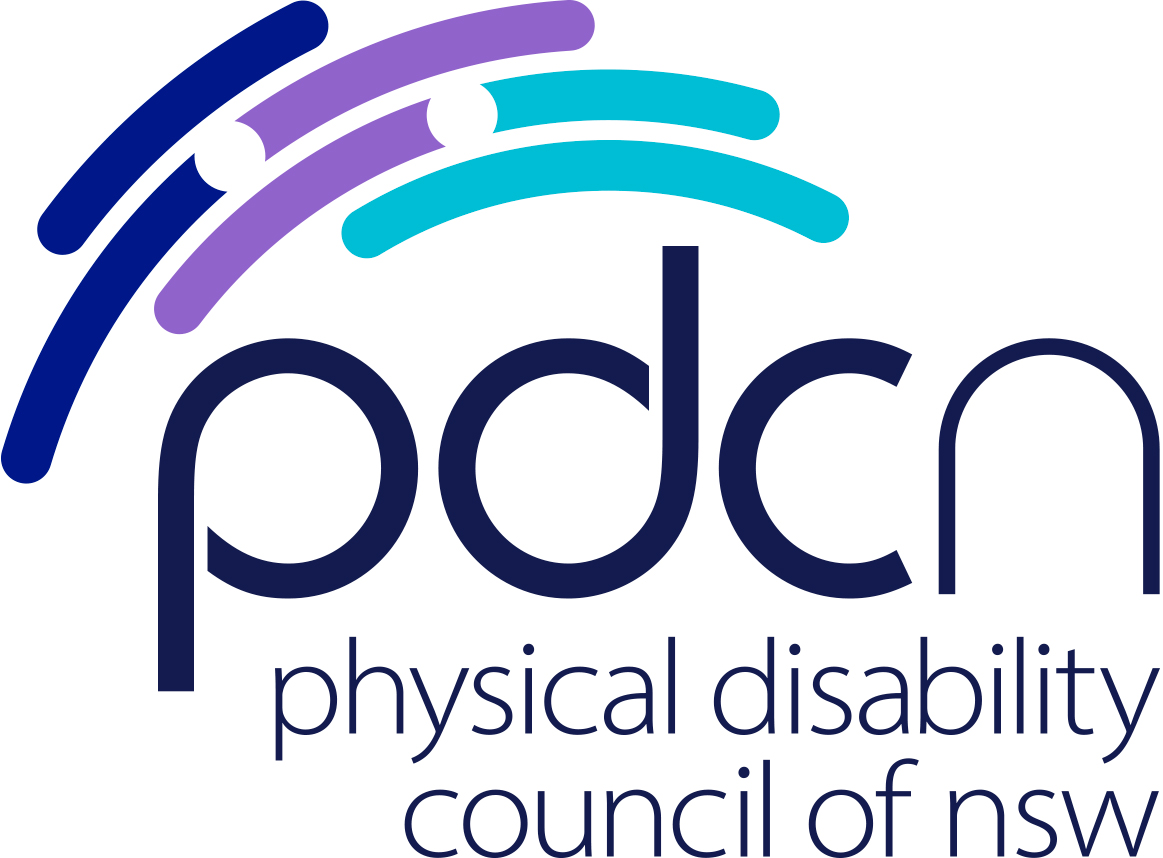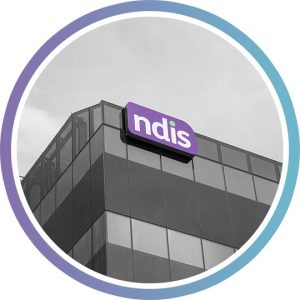Introduction
The Royal Commission into Violence, Abuse, Neglect and Exploitation of People with Disability (hereafter referred to as the Disability Royal Commission) was established in April 2019 in response to community concern about widespread reports of violence against, and the neglect, abuse and exploitation of, people with disability.
The Disability Royal Commission investigated prevention and protection for people with disability from violence, abuse, neglect and exploitation. The Commission also focused on achieving best practice in reporting, investigating and responding to violence, abuse, neglect and exploitation of people with disability and the promotion of a more inclusive society that supports people with disability to be independent and live free from violence, abuse, neglect and exploitation.
The inquiry covered various settings including schools, workplaces, detention centres, family homes, and hospitals, and collected information through research, public hearings, personal experiences, and submissions.
The Final Report, delivered on 29 September 2023, provides 222 recommendations to enhance laws, policies, structures, and practices for a more inclusive and just society for people with disabilities.
People with disability poured their time, energy and commitment into telling the hard-to-tell and hard-to-hear stories about their experiences of violence, abuse, neglect and exploitation. PDCN really appreciates the bravery and strength of those who spoke up to stop others from going through what they went through. Everyone has a responsibility to turn these recommendations into actions, making sure people’s stories inspire real change that improves the lives of all people with disability.
Our Approach
As a membership organisation, PDCN is driven by and prioritises the issues which our members bring to our attention, in addition to those of the broader community PDCN is committed to making a positive difference to the lives of the more than one million people with physical disability in New South Wales.
PDCN has reviewed the Disability Royal Commission Executive Summary Report and focused on the recommendations that have a direct impact on our members, and people with physical disability in NSW.
This interim response provides a high-level analysis of key recommendations and how PDCN anticipates they may could benefit our community if they are implemented. Since the NDIS Review will be published shortly, PDCN has decided not to focus on the recommendations related to the NDIS in this response, with the exception of Recommendation 7.42 in relation to appropriate housing models.
Due to the volume of information and recommendations, in order to make the information easier to follow, PDCN has broken down our response to key recommendations into identifying what problem the recommendation is trying to address, the proposed solution to the problem and, where relevant, what work PDCN has done in this space and what the approach of the NSW Government has been on this topic to date.
Housing
Recommendation 7.35
Increase the availability and supply of accessible and adaptive housing for people with disability through the National Construction Code (NCC).
The Problem
Our members tell us that housing issues are consistently one of the top problems they face. This outlines the need for state and territory governments to commit to increasing the availability and supply of accessible housing. In particular, section A recommends ‘immediately adopting the mandatory Australian Building Codes Board (ABCB) Livable Housing Design Standard for all new dwellings if they have not done so already and developing a plan for the full implementation of the standard, including timeframes and outcomes measures’.
The Solution
PDCN fully supports this recommendation. NSW adopting Livable Housing Design Standards in line with the NCC will make it easier for people with disability, older people, young families and friends and families of these groups to find safe, accessible and comfortable homes.
Our Advocacy
PDCN have been pushing for the NSW Government to mandate these changes in the NCC for over 2 years as part of the Building Better Homes campaign. Unfortunately, NSW remains one of the last states and territories in Australia which is yet to adopt the Livable Housing Design Standard (with only Western Australia being the other jurisdiction not having signed up yet). PDCN want to see this recommendation being adopted in NSW in the next six months.
Recommendation 7.42
Improve access to alternative housing options.
The Problem
Current NDIS administrative and pricing mechanisms often default to group home living over alternative models of inclusive and independent living when participants are seeking appropriate housing for their needs. This is not the desired or appropriate pathway for many participants.
The Solution
PDCN welcomes this recommendation to change NDIS participant funding models to allow greater flexibility and choice in housing for people with disability. This change would ensure administrative and pricing mechanisms do not default to group home living over alternative models of inclusive and independent living. There is also a recommended development of clear and supportive pathways for advice, support and advocacy for people with disability to understand and explore housing options.
Our Advocacy
PDCN supports this recommendation as it would give people with disability greater control and independence in choosing a home, with adequate support and information on all options available.
Health
Recommendation 6.1
A national plan to promote accessible information and communications.
The Problem
Many people with disability in Australia still cannot access information and communications on an equal basis to people without disability. Accessible information and communications are critical for protecting people during a crisis. In addition to the COVID-19 pandemic, there has been an increase in the prevalence of natural disasters in Australia since 2019. Part of the criticism from the disability community is that information distributed through official channels has not been accessible in terms of the language, styles, and channels used.
The Solution
More accessible information will improve communication with people with disabilities (as well as their families and carers). This may enhance individual responses during times of natural disasters and public health emergencies because it would enable people with disabilities to make informed decisions and take appropriate actions to better protect themselves and their families.
It could also have the effect of reducing anxiety and improving service response during a crisis and enhance the government’s ability to protect and keep people safe.
Our Advocacy
In terms of emergency preparedness, PDCN has developed the I’m Okay website providing resources and action plan templates for people with disabilities to refer to in preparation for and during a crisis. PDCN is also developing a programme that will prepare carers of people with disability for emergencies and the Health Care Passport Application to improve health care during emergency situations.
PDCN is also collaborating on an energy project to ensure people relying on life support equipment have back up plans for power outages. As the disability advocacy sector coordinator in NSW, PDCN is advocating through the NSW Disability Advocacy Network (NDAN), for the National Disability Insurance Agency (NDIA) to provide information in multiple languages and in different formats.
Recommendation 6.31
Embed the right to equitable access to health services in key policy instruments.
The Problem
There have been instances where people’s carers’ have not been permitted to accompany their clients in hospitals and health care settings. There is also ambiguity around a carer’s rights and obligations to provide information on behalf of their client.
The Solution
If implemented, this change would mean that people with disability could always be accompanied by a support person or carer when accessing healthcare. Having a support person helping with physical mobility, communication, and understanding medical information can offer emotional support and comfort during medical appointments, potentially reducing stress and improving the overall healthcare experience.
Our Advocacy
PDCN is in the process of finalising the first version of the Health Care Passport Application which documents health and care related information about people with physical disability and complex health conditions to be used by health staff to enhance medical intervention, personal care, and health services. The information in this application could be accessed by a person’s carer to provide information on their client’s behalf.
Recommendation 6.32
Increase capacity to provide supports and adaptations through improved guidance, funding and accessible information.
The Problem
Quality health care is an essential service and a human right. The CRPD recognises people with disability have the right to ‘the enjoyment of the highest attainable standard of health without discrimination on the basis of disability’.
Consistent with this, in August 2021, PDCN received distressing accounts from our members regarding the persistent challenges faced by people with disabilities when seeking appropriate care in healthcare settings.
The Solution
This recommendation proposes a list of frequently needed adaptions and supports, to be used as a guide by health care facilities, to ensure they are aware of what modifications and equipment they need to deliver high quality health care. While this general list is welcome, PDCN believes this should be accompanied by more personalised care information, such as that provided by the Health Care Passport Application, since general advice may not be suitable to each individual’s needs.
Our Advocacy
The Health Care Passport Application offers a list of medical equipment, assistive technology and communications strategies for each user to support health care staff. PDCN would also recommend that the draft list is circulated to the disability advocacy sector through NDAN for input.
Recommendation 6.36
Immediate action to provide that certain restrictive practices must not be used.
The Problem
Restrictive practices are used in the ordinary management of people with disabilities across many contexts. Restrictive practices need to be recognised as incompatible with the fundamental rights of people with disability – restricting an individual’s physical freedom, their right to personal autonomy and their personal dignity. These practices can be dehumanising, but also potentially physically and psychologically dangerous. These practices can come precariously close to acts of recognised criminality such as physical assault.
The Solution
This change will improve how the health and care settings respond to patients by ensuring a more human rights-based approach.
Our Advocacy
PDCN supports this recommendation as it is our belief that Australia should work towards heavily restricting and regulating the use of any form of restrictive practice. This is consistent with Australia’s international commitments under the United Nations Convention on the Rights of Persons with Disability (the UNCRPD), Article 15, which is freedom from torture or cruel, inhuman or degrading treatment or punishment .
Employment
Recommendation 7.19
Establish specific disability employment targets for new public service hires in agencies and departments.
Recommendation 7.21
Develop an Australian Public Service-wide adjustment passport to improve the ease with which people with disability can maintain and transfer their adjustments when moving within the Australian Public Service.
The Problem
People with disability, including those participating in the workforce, experience higher levels of economic disadvantage than people without disability and are more frequently employed in precarious or casual employment.
PDCN support this recommendation which would require the Australian Government and state and territory governments to be required to set a target to ensure that at least 7% of new public service hires to their respective workforce are people with disability by 2023, increasing to 9% by 2020.
The Solution
PDCN believes that the implementation of this recommendation would be a proactive step towards creating a more inclusive and equitable workforce that values the contributions of people with disabilities. Achieving these targets will reduce barriers to employment and give more people with disability financial independence.
By hiring people with disabilities, this will provide opportunities for people with disabilities to build long-term, fulfilling careers and the public service would benefit from the diversity, creativity, and innovation that people with disabilities can bring to the workplace.
PDCN also supports the recommendation for an Australian Public Service-wide adjustment passport which will help support people with disability who are employees in the public service to make a smoother transition between departments and agencies.
Human Rights
Recommendation 4.1
Establish a Disability Rights Act.
The Problem
The Disability Rights Act would give effect to Australia’s obligations under the Convention on the Rights of Persons with Disabilities. The Disability Rights Act should include a set of guiding principles designed to promote and advance the rights of people with disability in Australia.
The Solution
Under this Act, Commonwealth entities would be required to consult with people with disability and carers, families, and supporters of people with disability in the development, evaluation and planning of new initiatives or major changes to services that impact or are provided to the public.
Our Advocacy
PDCN has previously called for the introduction of a Human Rights Act in NSW, as Australia is currently the only liberal western democracy that does not have a Bill of Rights to ensure basic human rights are enforceable in our domestic legal system.
Recommendation 4.12
Positive duty to promote disability equality and inclusion.
The Problem
There is currently no legislative obligation for commonwealth entities to promote a positive duty that ensures the equality of rights for people with disability. This means that the burden of proving a breach of rights or disability discrimination rests solely on the person whose rights have been breached.
The Solution
Under the Disability Rights Act, there will be a positive duty for commonwealth entities to ensure the rights of people with disability and act consistently with obligations under the Act. This would make it unlawful to fail or refuse to make an adjustment for a person with disability unless the adjustment would impose a valid unjustifiable hardship. It will also ensure that the burden of providing access and upholding the rights of people with disability falls on Commonwealth entities.
Recommendation 4.18
Functions of the National Disability Commission to support compliance with the Disability Rights Act.
The Problem
The National Disability Commission would be established to implement and have oversight of the Disability Rights Act.
The Solution
The Commission will have powers of inquiry, enforcement, and oversight of non-compliance with the Disability Rights Act. This is to be developed in co-design with people with disability to develop an adequate complaints mechanism. The introduction of this commission will provide an important safeguard and compliance mechanism for the Disability Rights Act.
Our Advocacy
PDCN supports the establishment of the Commission. However, it is important that enforcement powers are broader than a complaints system and are able to enforce compliance and promote systemic change.
Recommendation 5.1
Development of a National Disability Agreement.
The Problem
There are several disability related policies, programs and systems across Australia. The disability sector is becoming confusing in terms of roles and responsibilities, and it is not operating as effectively as needed.
The Solution
A National Disability Agreement between the federal, state and territory governments developed through the Disability Reform Ministerial Council aims to advance the equality, inclusion and rights of people with disability. This would be achieved through a framework for intergovernmental collaboration for implementing reforms, and Australia’s Disability Strategy and the NDIS.
Our Advocacy
PDCN supports this recommendation to help harmonise disability related policies and see disability beyond the scope of the NDIS (which while important, is only providing support to a minority of people with disability).
Recommendation 5.5
Establishment of a National Disability Commission.
The Problem
The National Disability Commission would be established to implement and have oversight of the Disability Rights Act.
The Solution
The National Disability Commission would act as an independent statutory body under the Disability Rights Act. The function of this Commission would be to monitor and have oversight of the Disability Rights Act, monitoring and reporting on outcomes for people with disability nationally and promote best practice and new approaches to improving outcomes for people with disability. The Commission is to be chaired by a person with disability and most commissioners must be people with disability.
The establishment of this Commission will provide independent mechanisms for compliance for the promotion of the right of people with disability.
Our Advocacy
PDCN supports this recommendation but want to stress that it is of great importance that this is established in codesign with people with disability and adequately represents a diverse range of this cohort.
Recommendation 5.6
New governance arrangements for disability.
The Problem
The disability sector requires strategic direction and coordination to enhance efficiency.
The Solution
The DRC recommends the establishment of a separate portfolio responsible for the disability and carers policies and programmes which are currently under the jurisdiction of the federal Social Services portfolio. There is also the call for the establishment of a federal Minister for Disability Inclusion, who would hold responsibility for the disability related strategies, policies and programmes currently held by the Minister for Social Services. Alongside this, it is recommended that a federal Department of Disability Equality and Inclusion be established. This recommendation sets a timeline that these changes are to be implemented by the end of 2024.
Our Advocacy
PDCN has previously supported the transfer of the NSW Disability Inclusion portfolio into a single coordinated entity within the NSW Department of Premier and Cabinet. This was in partnership with other disability organisations in a Disability Inclusion in NSW blueprint ahead of the state election in 2023. PDCN welcomes the new federal governance arrangements for disability recommended in the DRC and would like to see similar arrangement established in NSW at a state level.
Advocacy & Data
Recommendation 6.21
Additional funding for advocacy programs.
The Problem
Disability advocacy is crucial for promoting equal rights, preventing and challenging discrimination, improving rules and systems to give people with disabilities choice and control over their lives, improving support services and promoting community integration. Importantly, disability advocacy gives people with disability a voice.
Currently, disability advocacy is precarious and underfunded, which limits the capacity to achieve advocacy goals for people with disability who need it most.
The Solution
PDCN welcomes recommendations focused on increasing funding for disability advocacy across Australia. This will ensure people with disability have access to advocacy as these programs are adequately funded and have continuing, stable capacity to assist those in need.
PDCN also welcomes the recommendations to provide long-term and stable funding for disability advocacy organisations as this improves efficiency, staff retention, builds trust, encourages innovation, and is much more cost effective.
Recommendation 6.22
Improved data collection and reporting on met and unmet demand for disability advocacy.
Recommendation 12.5
A nationally consistent approach to data collection.
The Problem
Current data collection on disability is inconsistent, with the true scope of issues and the extent of issues on populations difficult to accurately quantify.
The Solution
A nationally consistent data collection approach would enable effective resource allocation, improve decision making, ensure accountability, allow for more evidence-based policies, and the ability to make global comparisons.
Our Advocacy
PDCN believes improving funding and data for advocacy is essential for creating a more inclusive and just society where people with disabilities can thrive and fully participate.
Systemic Change and the Cycle of Complaints
Following the publication of this final report, PDCN believes that the only way to respect the time and bravery of the people who fed into this commission is for both federal and state and territory governments to actually implement the recommendations and to act with a sense of urgency.
Without meaningful legislative and regulatory change people with disability are often locked into a cycle of complaints that doesn’t the change the systemic cause of the problem. The cyclical nature of the complaints processes is demoralising, exhausting and frustrating for people with disability. Complaints mechanisms are important, however governments at all levels should be mindful to develop stronger links between complaints mechanisms and systems reform.
Next Steps
PDCN is currently undergoing consultation with our members to shape the next PDCN strategic plan and accompanying advocacy priorities for systemic change. Following this interim response, PDCN will be utilising the recommendations in the DRC report (beyond the recommendations listed in this response) to help shape our work.
As a systemic advocacy organisation, PDCN will continue to advocate on behalf of people with physical disability and calls on both the NSW Government and the Federal Government to implement the recommendations PDCN has highlighted in this blog as a matter of urgency.
Any government which is committed to promoting a more inclusive society that supports people with disability to be independent and live free from violence, abuse, neglect and exploitation needs to have a clear roadmap for what they must do next.
PDCN looks forward to working with both the NSW Government and Federal Government, as well as industry, the community sector and our communities to make this happen.



